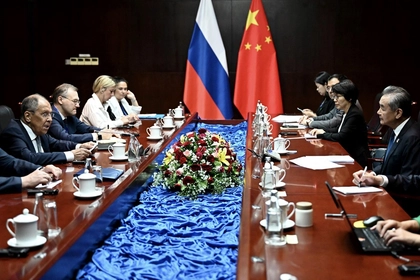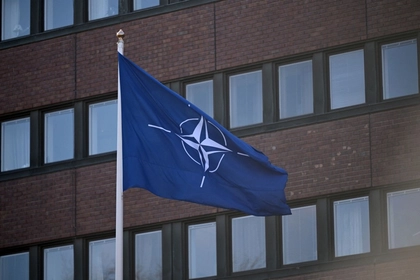Russia delivered a new warning to the West over a grain deal with Ukraine on Thursday, April 13,saying a number of conditions must be met for Moscow to extend it beyond May 18.
Negotiated in July by Turkey and the United Nations, the agreement has given Ukrainian grain shipments a safe corridor in the Black Sea after they were blocked amid the conflict with Russia.
JOIN US ON TELEGRAM
Follow our coverage of the war on the @Kyivpost_official.
Russia, whose economy has been hit by a raft of Western sanctions, has repeatedly threatened to walk away from the agreement if obstacles to its own exports remained.
The Russian foreign ministry said in a statement on Thursday that "it is hard to talk about the further extension of the 'Black Sea initiative' after May 18" if Moscow does not see any progress.
There are no sanctions on Russian exports of food and fertilizers to global markets but the problems are related to the secondary sanctions imposed on shipping and insurance companies as well as banks.
The foreign ministry laid out a list of conditions for the extension of the deal including allowing the Russian Agricultural Bank (Rosselkhozbank) to reconnect to the SWIFT payment system.
Supplies of agricultural machinery, spare parts and services also have to be resumed, the statement said.
Moscow's conditions included the resumption of ammonia supplies via the Togliatti-Odessa pipeline.
In addition, the foreign ministry demanded the lifting of restrictions on insurances and access to ports, and sanctions on companies linked to the production and transport of food and fertilizers.

Russia, China FMs Meet as ASEAN Talks Get Underway in Laos
Since July the deal allowed the export of more than 27 million tons of grain and agricultural products. It was renewed twice.
When it was extended in March, Russia said it would be valid for 60 days instead of the 120 days in the original agreement.
You can also highlight the text and press Ctrl + Enter






